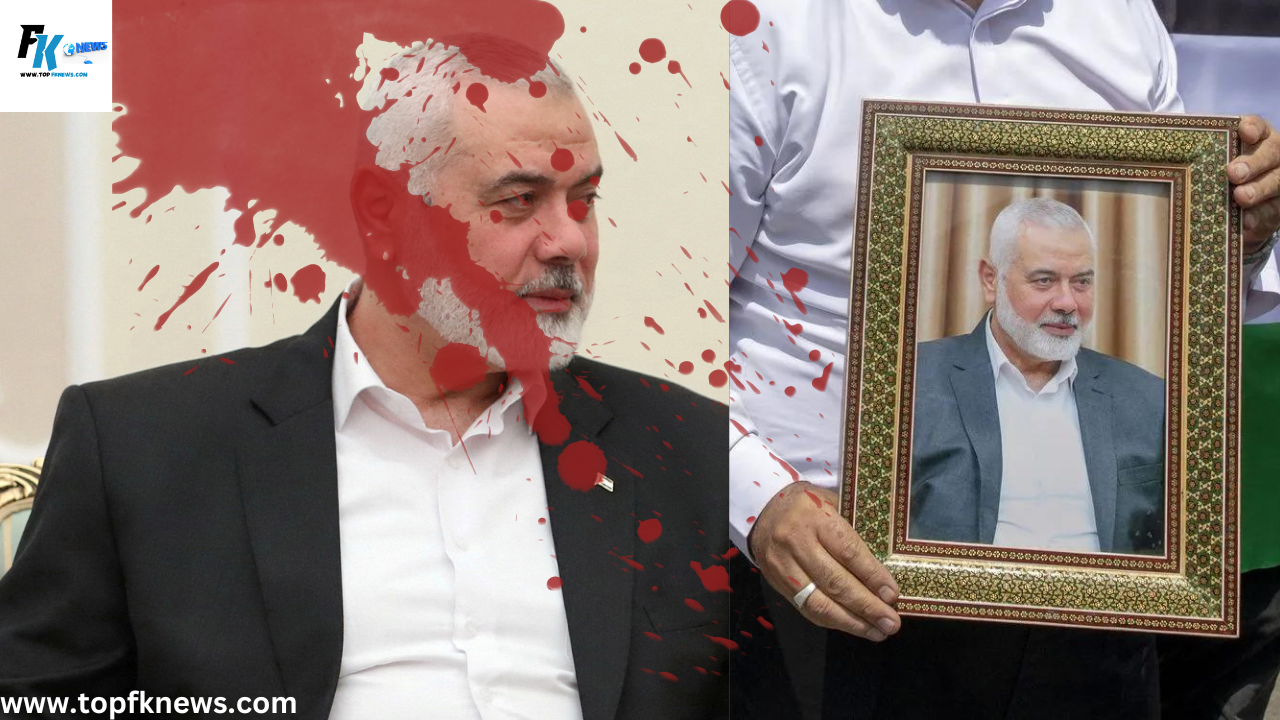Ismail Haniyeh, political leader of Hamas since 2017, has been a prominent figure during Israel’s war in Gaza and played a crucial role in ongoing ceasefire and hostage release negotiations. On Wednesday, both Hamas and Iranian state media reported that the 62-year-old was killed in Tehran. Hamas stated that Haniyeh died in an Israeli “strike” on his residence, though the Israeli military did not comment when contacted by a news reporter.
His death is a significant blow to Hamas, especially during a period of escalating tensions across the Middle East due to the war in Gaza. It also raises important questions about the future of negotiations between Israel and Hamas. As Hamas’s political leader, Haniyeh was a key intermediary with international mediators during the stalled hostage and ceasefire talks following Hamas’s October 7 attack on Israel.
Born in a refugee camp near Gaza City, Ismail Haniyeh joined Hamas in the late 1980s during the First Intifada, an uprising against Israel’s occupation in Gaza and the West Bank. His parents were refugees expelled from Askalan, now known as the Israeli city Ashkelon. He was imprisoned several times in Israel for his participation in the uprising before being deported and later returning to Gaza, where he steadily rose through Hamas ranks in the following decade.
Ismail Haniyeh’s journey through the ranks of Hamas is marked by significant milestones and turbulent events. Born in a refugee camp near Gaza City, Haniyeh’s early years were shaped by the harsh realities of displacement and conflict. He joined Hamas in the late 1980s during the First Intifada, an uprising against Israel’s occupation in Gaza and the West Bank. His parents were refugees expelled from Askalan, now known as Ashkelon in Israel, and this background influenced his commitment to the Palestinian cause.
In 2004, after the deaths of Hamas’ founders Sheikh Ahmed Yassin and Abdel Aziz Rantisi in Israeli strikes, Haniyeh was appointed as part of a secret “collective leadership.” This was a pivotal moment as it marked the beginning of his ascent within the organization. Two years later, after Hamas won elections to the Palestinian Legislative Council, Haniyeh became the prime minister of the Palestinian Authority (PA) government. However, his tenure was short-lived; he was dismissed after a year by PA President Mahmoud Abbas. Haniyeh remains the only PA prime minister to have taken office after securing a mandate in popular elections.
The following year, in a bloody conflict with the ruling party of the Palestinian Authority, Fatah, Hamas seized control of Gaza. This led to Israel and Egypt imposing a land, sea, and air blockade on the territory. Despite these challenges, Haniyeh continued to rise within Hamas. Although he was regarded as the leader of Hamas in Gaza for many years, he did not become the overall political leader until 2017, succeeding Khaled Meshaal.
In 2018, Ismail Haniyeh was designated a “specially designated global terrorist” by the United States, amidst heightened tensions between Washington and the Palestinians. This designation came during the controversial period when then-US President Donald Trump recognized Jerusalem as the capital of Israel. Despite this label, Haniyeh continued to travel globally, meeting with various world figures as the political head of Hamas.
On Tuesday, Haniyeh was photographed meeting Iran’s new president, Masoud Pezeshkian, in Tehran. However, his life came to a sudden end when he was reportedly killed in an Israeli strike on his residence in Tehran, as announced by Hamas and Iranian state media. His death is a significant blow to Hamas, particularly during the ongoing war in Gaza, and raises critical questions about the future of negotiations between Israel and Hamas.
Ceasefire and Hostage Negotiations
The October 7 Attack
On October 7, Hamas launched a surprise attack that saw at least 1,500 fighters crossing into Israel. The assault resulted in the deaths of at least 1,200 people and the abduction of around 200 individuals, who were taken hostage. This sudden escalation triggered a severe response from Israel.
Devastation in Gaza
In retaliation, Israeli strikes on Gaza have resulted in the deaths of over 39,000 Palestinians, according to the Ministry of Health in Gaza. The bombardment has also created a dire humanitarian crisis in the densely populated strip, exacerbating the already tense and volatile situation.
Ismail Haniyeh's Role in Negotiations
In the months following the attack, Ismail Haniyeh emerged as a crucial figure in international negotiations aimed at resolving the conflict and securing the release of hostages still held in Gaza. He expressed a willingness to reach an agreement if Israel withdrew from Gaza, emphasizing the need for a permanent cessation of fighting in the enclave. In May, Haniyeh reiterated that Hamas was “still keen” to strike a deal with mediators, seeking to end what he described as “aggression against our people.”
Stalemate and Continued Efforts
Despite Haniyeh’s efforts, Israel found Hamas’s demands “unacceptable,” with Prime Minister Benjamin Netanyahu vowing to continue fighting until Hamas was destroyed. This hardline stance led to a stalemate in negotiations, with both sides blaming each other for the lack of progress. However, as recently as early July, Haniyeh was in communication with mediators in Qatar and Egypt, exploring potential solutions to end the war. These discussions sparked some hope that a framework agreement might be within reach.
Impact of Haniyeh's Death
Haniyeh’s death has profound implications for ongoing negotiations. CNN Political and Foreign Policy Analyst Barak Ravid noted that his passing would significantly influence the future of these talks. Throughout the conflict, Haniyeh continued to engage with world leaders and officials, including a meeting with Chinese diplomat Wang Kejian in Qatar in March, where they discussed the situation in Gaza.
Personal Losses and Resilience
The war in Gaza also took a personal toll on Haniyeh. In April, Israeli police arrested one of his sisters for communicating with Hamas members. Shortly after, Israeli airstrikes killed three of his sons and four of his grandchildren. Despite these devastating losses, Haniyeh insisted that their deaths would not deter Hamas from pursuing its demands in the ceasefire and hostage negotiations. He maintained that targeting his family would not force Hamas to back down, emphasizing his steadfastness in the face of personal tragedy.
Haniyeh's Base in Qatar
At the time of these events, Haniyeh was based in Qatar, a country not bound by the Rome Statute, which grants jurisdiction to the International Criminal Court. His location provided him with a degree of security and enabled him to continue his efforts in the international arena.

